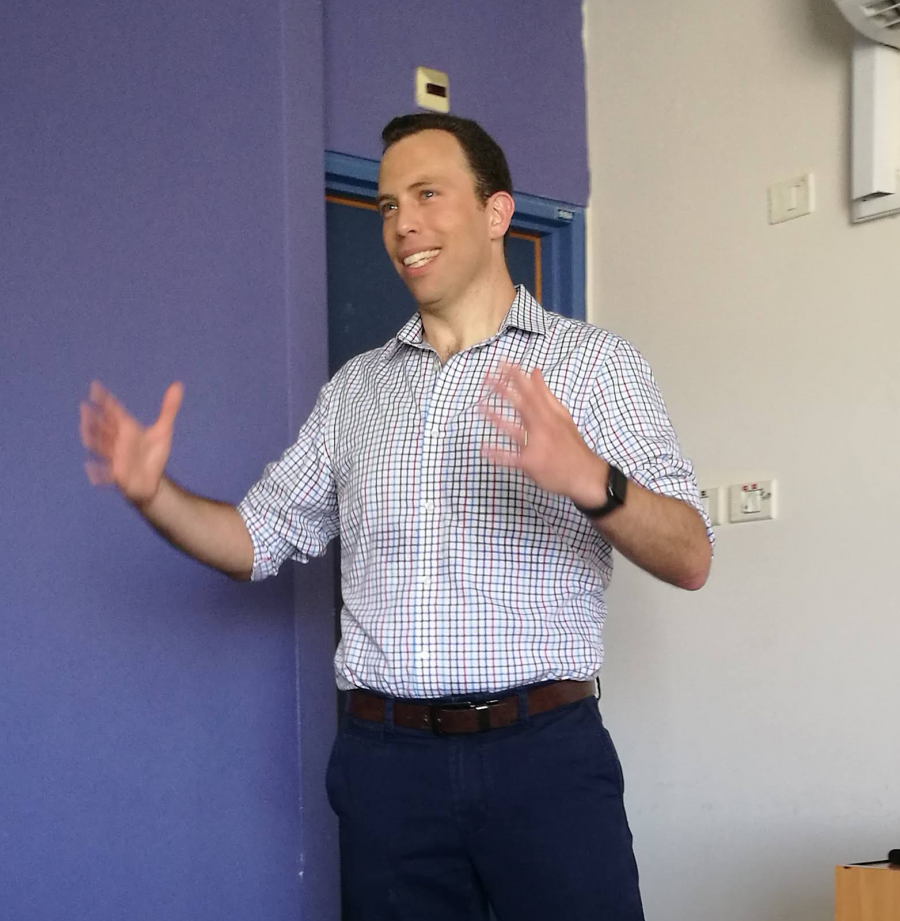Dr. Shaanan Meyerstein speaks to MSIH students on his experiences working with refugees in various environments, specifically in the migrant health crisis in the US.
The MSIH curriculum includes a special focus on Global Health, which uniquely trains the school’s alumni to work in and around some of the most profound health crises across the globe. The article below is the first in a 3-part series on our Alumni and their experiences with the migrant health crisis in the US.
As Physician-in-Charge, how would you staff an immigrant clinic in an inner city in the United States? What screening processes would you develop? Which diagnostic tests would you implement? What drugs would you dispense? How would you liaise with the population?
These were some of the questions posed by visiting alumnus, Dr. Shaanan Meyerstein who spoke to students in September about his experience working with the US Office of Refugee Settlement. Dr. Meyerstein was attending MSIH as the guest speaker at this year’s Physicians Oath Ceremony.
Shaanan graduated in 2010, and then went on to complete his Pediatric residency at Long Island Jewish Medical Center. Immediately after residency, he took off to work for a year in Botswana at the Baylor International Pediatric HIV Initiative.
In 2019, Dr. Meyerstein took up his current position in the Office of Refugee Resettlement in the Department of Health and Human Services in Washington, DC where he serves as a physician in the Unaccompanied Immigrant Minors Program. The program serves almost 60,000 displaced children who are detained by US Homeland Security and Border Patrol. As part of his work, Shaanan screens children in shelters across the US for infectious diseases such as TB, varicella, Zika virus.

Thinking Practically: How to effectively screen migrant populations
Dr. Meyerstein’s interactive discussion forced students to think about the practical problems of dealing with migrant populations. This includes treating some patients who may have never seen a doctor in their lives.
Each group more-or-less arrived at the same conclusion. Of the three people they chose to recruit, each selected a nurse, a social worker, and an administrator.
Several students made interesting and creative suggestions. As a liaison with the local First Responders, one group suggested it should be the Fire Department and not the Police. Questioned about the logic, the team said that refugees would probably be very wary of the Police and keep themselves hidden. On the other hand, Fire Fighters are more approachable and less threatening. Impressed by the thinking, Shaanan congratulated the team on their cultural awareness – which is precisely what their MSIH education is all about.



